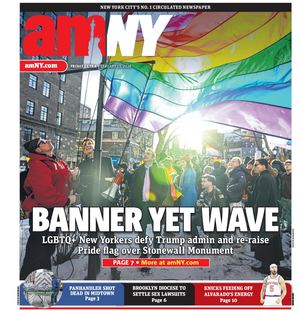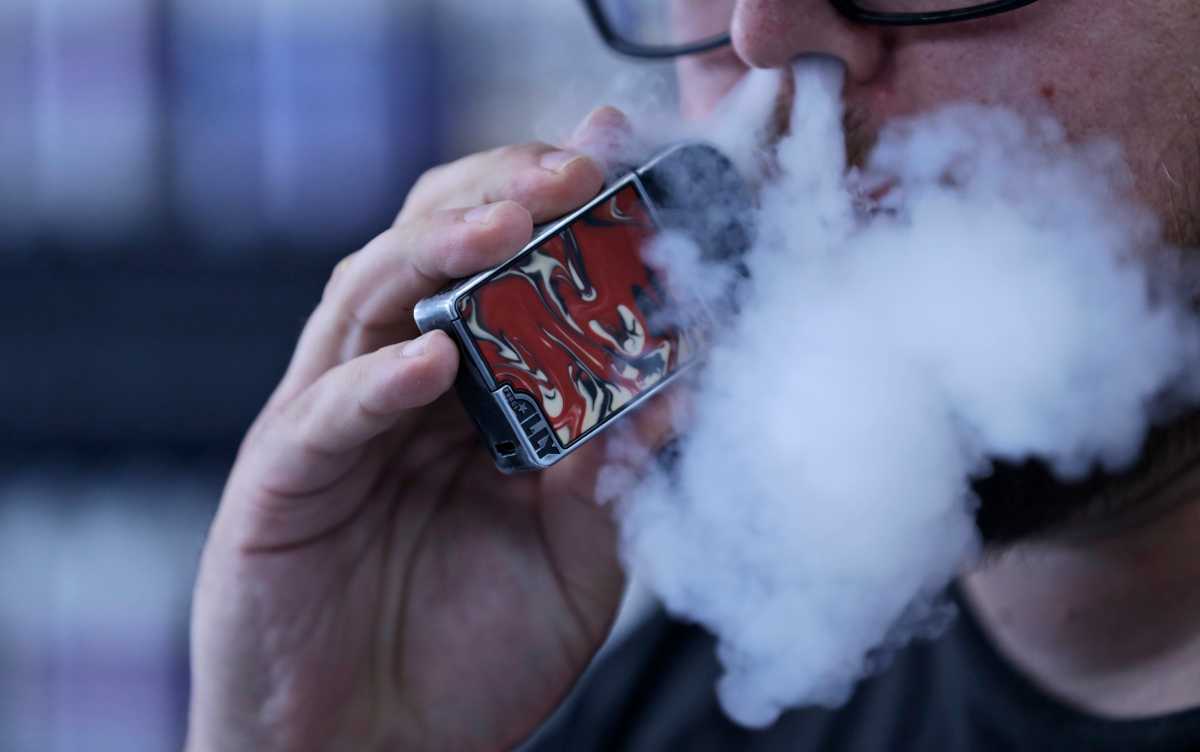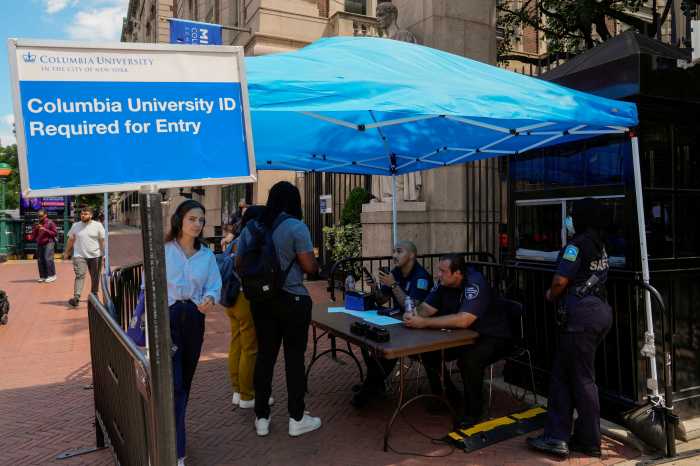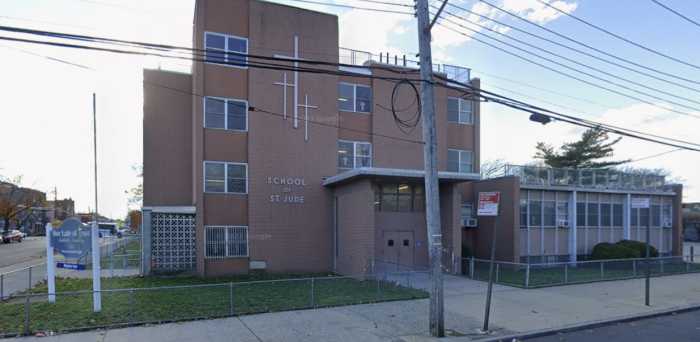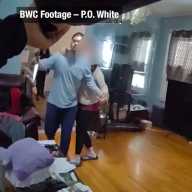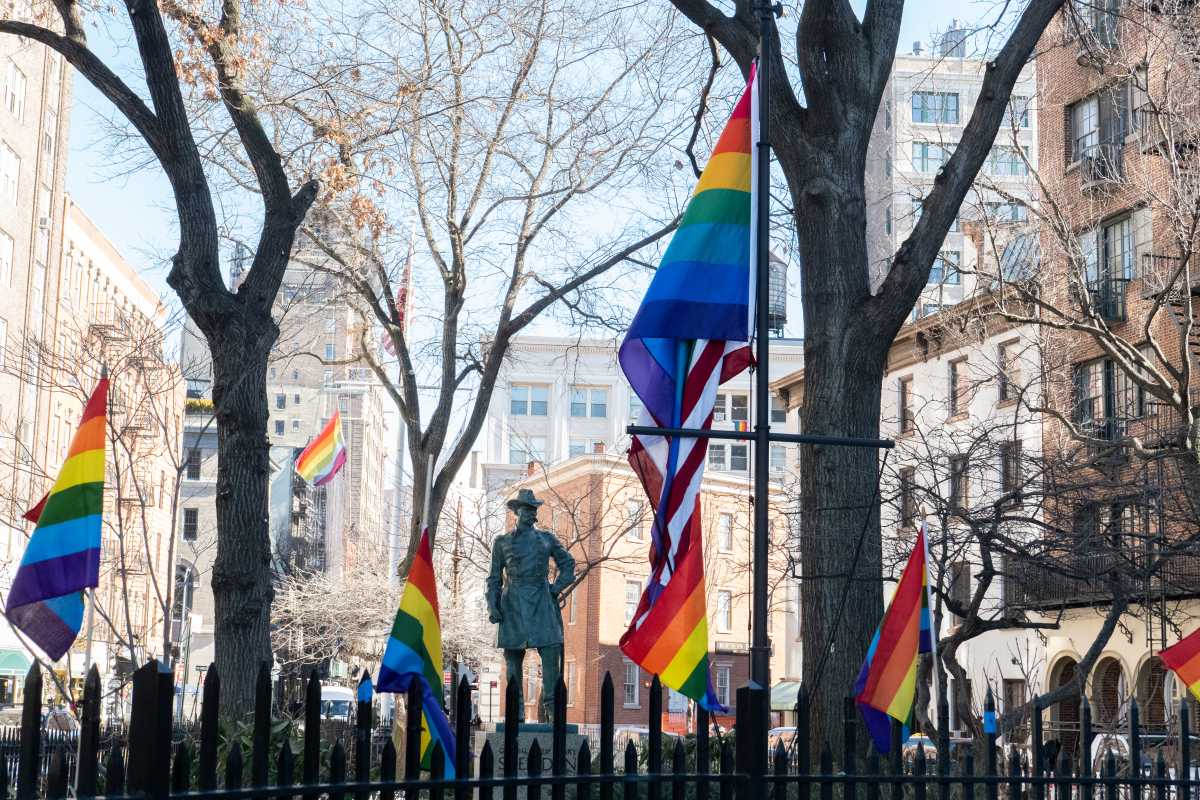BY ALEJANDRA O’CONNELL-DOMENECH | Advocates want kids to remember that it’s “back to school” not “back to JUUL.”
Thurs., Sept. 5, marked the first day of classes in New York City. Members of the Flavors Hook Kids NYC coalition marked the occasion by gathering signatures for a petition supporting legislation to restrict the sale of flavored tobacco e-products in the Big Apple.
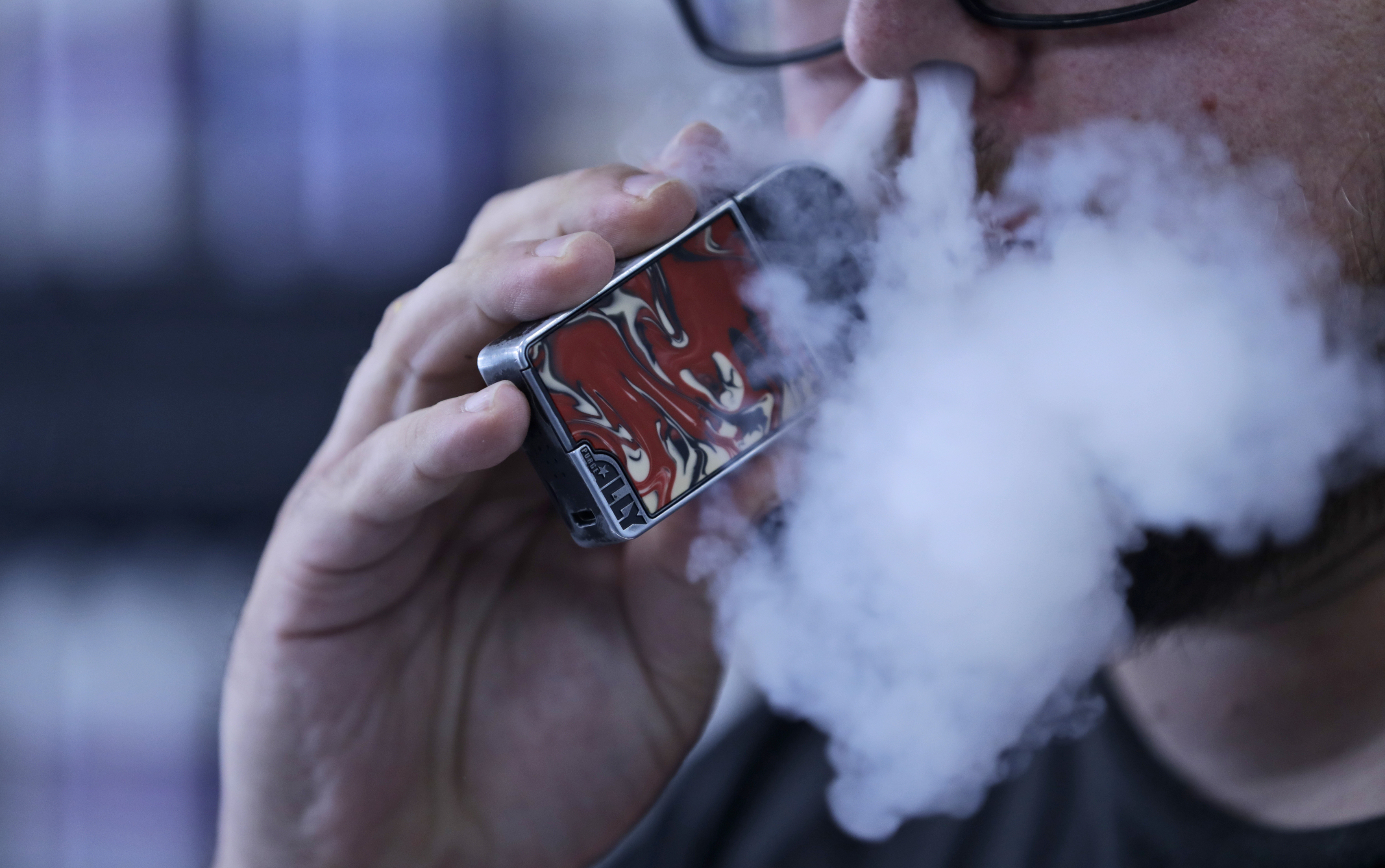
According to the 2018 National Youth Tobacco Survey, e-cigarette use among middle school and high school students increased significantly, from 2.1 million in 2017 to 3.6 million last year. In 2018, one out of every five high school students and one out of every 20 middle school students admitted to using an e-cigarette.
The study attributes the rise in use to the recent popularity of e-cigarettes shaped like a USB flash drive — like JUUL — which can be used discreetly, have high nicotine content and are sold in flavors appealing to young people, like bubble gum, mango and cotton candy.
“My mom smokes and I have a little brother and I don’t want to see him do that,” said Kyle Jacobs, 21, a coalition volunteer working outside of P.S. 64 in the East Village at E. Sixth St. and Avenue B. “There’s a lot of things that come with smoking: You can die young; it can stunt your growth. That’s not for him.”
Advocates also gathered petition signatures outside P.S. 11 in Brooklyn, the Challenge Prep Charter School in Queens, River East Elementary School in East Harlem, M.S. 228 in the Bronx and Tompkins Square Middle School, also at E. Sixth St. and Avenue B.
Mark Levine, chairperson of the City Council Health Committee, joined advocates on Thursday morning outside P.S. 64 to help garner support against what he called, “the biggest lure that is trapping a new generation in nicotine addiction.”
The councilmember is the prime sponsor of the bill to ban the sale of flavored e-cigarette products in the city. The measure currently has support of 22 other councilmembers. Levine told Politico that he was working with Council Speaker Corey Johnson on the legislation.
Along with Levine’s bill advocates support another one introduced by Councilmember Fernando Cabrera that would ban menthol-flavored cigarettes.
Despite recent reports of respiratory illnesses and deaths attributed to vaping, Levine’s legislation has been delayed. According to the Centers for Disease Control, as of Sept. 6., there have been more than 450 possible cases of lung illnesses related to e-cigarette use reported to the federal health agency in 33 states. C.D.C. has also confirmed five deaths connected to e-cigarette use. The agency has even issued a warning for people not to use the devices as it investigation of a possible connection between vaping and lung illness continues.
A coalition member, the Campaign for Tobacco-Free Kids — in addition to organizing to get New Yorkers to support city legislation — also started a citywide media campaign last week. According to the New York Post, the lobbying group spent more than $1 million to circulate its pro-ban ads last week in newspapers and social-media platforms, like Facebook and Twitter. One ad states, “Addiction now is bubble gum flavor” and “Tell the City Council to protect kids and restrict tobacco flavors.”
